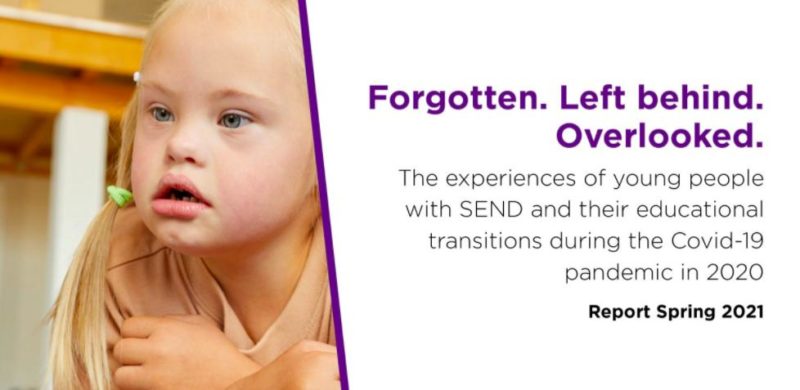Olivia Blake Member of Parliament for Sheffield Hallam
The All Party Parliamentary Group for special educational needs and disabilities (SEND), which I chair, today published the findings from our inquiry into the experiences of children and young people with SEND in educational settings during the Covid-19 pandemic.
The inquiry – launched in July 2020 and consisting of a number of evidence sessions with parents, teachers and young people – has found that the Government and Department for Education did not do enough to support the UK’s most vulnerable children and young people during Covid-19, forcing schools and families to “pick up the pieces.”
Our report concludes that the needs of children and young people with SEND were continuously overlooked by the Government in their Covid response. Guidance for special schools and alternative provision was published later than guidance for mainstream schools, making young people with SEND feel like an “afterthought”.
One parent, who took part in the inquiry, said: “It is very sad to see that the lives and care of our young people is regarded as so unimportant that the services we rely on for support… were deemed non-essential and closed down for six months”
During the inquiry, we heard from vulnerable children who were refused attendance in schools, despite not being able to replicate support in the home environment; parents who were left out of important decisions and risk assessments about their childrens’ schooling; support staff not been allowed on to school sites due to Covid restrictions; and children made to start in a new educational setting without the support, required in their Educational and Health Care Plans.
One parent said: “We’ve gone from 24/7 residential Monday to Friday term-time and PA support at weekends and holidays, to absolutely nothing and home full-time. I’m a single parent and feeling the strain physically, emotionally, and financially. Nothing is being done to support us.”
We also found that the mental health of young people with SEND, and that of their families, has been widely impacted by the pandemic, with increased levels of anxiety frequently reported by both children and parents.
The report also highlighted issues with funding for SEND provision, which was already of long-term concern, with local authorities, school settings and families reporting deficits in the high-needs budget. The report found that the impact on schools of Covid-19 related costs and loss of income has only exacerbated this crisis.
We lay out 9 key recommendations including new additional funding for support for SEND children and mental health support; specific funding to deal with the backlog in assessments for Educational and Health Care Plans; and an urgent and time-bound parliamentary review in order to assess the impact which Covid has had upon children with SEND.
We are also calling on the Secretary of State for Education to publish the long-awaited SEND review and commit to working with the cross-party group to ensure that SEND Children and Young People are placed at the centre of government’s policies and decisions.
For the past year, young people with SEND, their families and education settings have often been treated as an afterthought when they should have been at the fore of the Government’s response to the pandemic. Through this report we wanted to amplify their voices, and I’m grateful to everyone who shared their experiences with us. Many of the submissions we received were raw and anxious, reflecting longstanding problems that have been magnified by the Covid crisis. I hope this report will focus discussion on how we address those problems and improve a system that has long-needed change.
You can view the full report and more about APPG SEND here.

